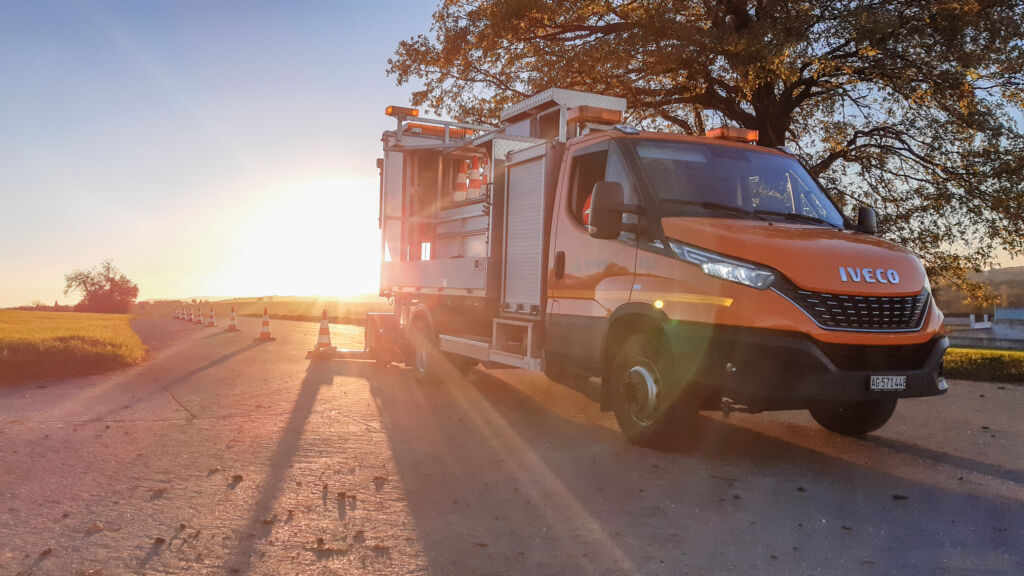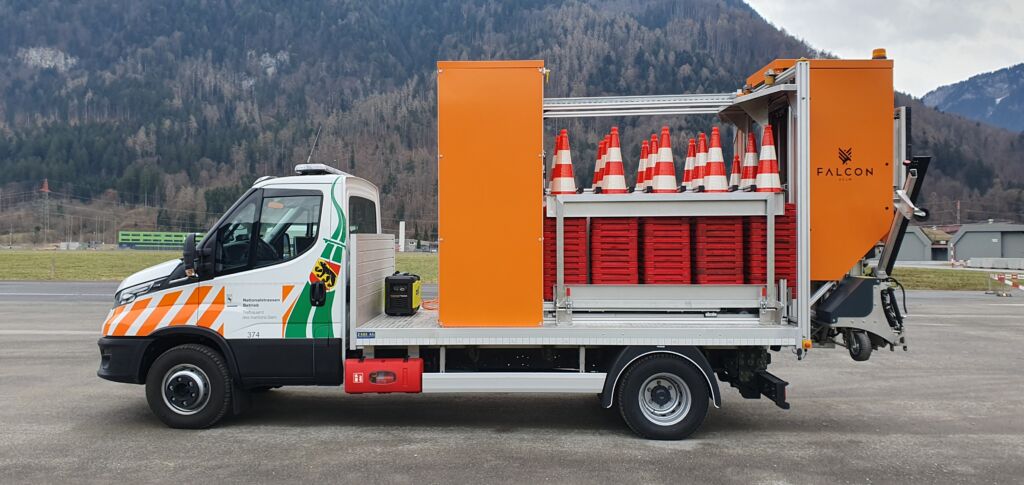
Highway Care has added a second Falcon Automated Cone Laying Machine (ACLM) model to its product range, responding to feedback from local authorities with the smaller, more agile Falcon 75 ACLM.
The award-winning Falcon ACLM was launched by Highway Care in 2022, following National Highways approval. The innovation ushered in a new era for risk reduction and enhanced worker safety through automation, with its boots-off-the-ground approach to efficient cone laying for road maintenance and improvement projects.
Deployed by Balfour Beatty and Connect Plus Services as part of their delivery of the M25 improvement programme, the Falcon ACLM has gained significant interest from authorities and contractors alike, thanks to its operational and safety benefits. However, having received feedback from local authorities, requesting a more compact system for use on local and rural roads, Highway Care has now added the smaller Falcon 75 ACLM to its range.
Designed with all the functionality and safety benefits of its larger counterpart, the smaller Falcon 75 ACLM is suitable for use with 750mm, 5 kg cones, and is designed to be mounted on the back of a truck bed or inside a curtain side body. The equipment is available in three capacity arrangements, ranging from 240 to 480 cones in each machine, runs on a 48 VDC / 180 Ah on board battery, which enables up to 600 cone cycles on a single charge.
Just like the standard ACLM, the Falcon 75 ACLM aims to make cone laying faster and safer by avoiding the need for operatives to work close to live lanes of traffic and preventing worker exposure to musculoskeletal injuries, which can be associated with conventional cone laying operations.

The need to take boots off the ground on narrower, more congested roads is arguably even more safety critical, protecting both road workers, and road users who may become distracted by operatives in the carriageway.
Ben Duncker, Commercial Director at Highway Care explains: “Traffic management is an essential element of any road maintenance or improvement project, and the traffic cone serve an important safety measure in segregating the works area from live traffic. Millions of cones are in use across the UK road network, but the manual process of deploying and removing them involves inherent risks for highways operatives. The Falcon 100 ACLM was developed for use across National Highways’ strategic road network (SRN) to work with the commonly used 1m cone. It has since become clear there is an appetite for a smaller machine designed to work with the 750mm cones more commonly used across the major road network of local authority managed A roads and non-SRN roads.
“With the Falcon 75 ACLM, we are adding a solution to our range that can be deployed more flexibly, on narrower roads that are less straight or come with height restrictions and require a smaller vehicle to suit the needs of the operation. This gives local authorities the automated equipment they need to deliver safer cone laying activities for both road workers and road users.”
Allowing cone laying operations to be controlled from inside the cab, the Falcon 75 ACLM enables cones to be placed and picked up across the back of the vehicle, to the left or right, with preset modes for working in medium and narrow lanes. It enables accurate cone placement, while keeping workers safely away from traffic, and ensures that cones are deployed and removed quickly, to aid rapid site set up and removal.
Ben adds: “As a Local Council Roads Innovation Group (LCRIG) member, we are constantly working to provide innovative solutions for a safer future on road networks managed by local authorities, as well as national infrastructure.
“The Falcon 75 ACLM is a significant addition to our capabilities for local authority roads, and we’re looking forward to seeing how it makes a difference to both safety and efficiency during maintenance and improvement projects.”
Click here to find out more.

